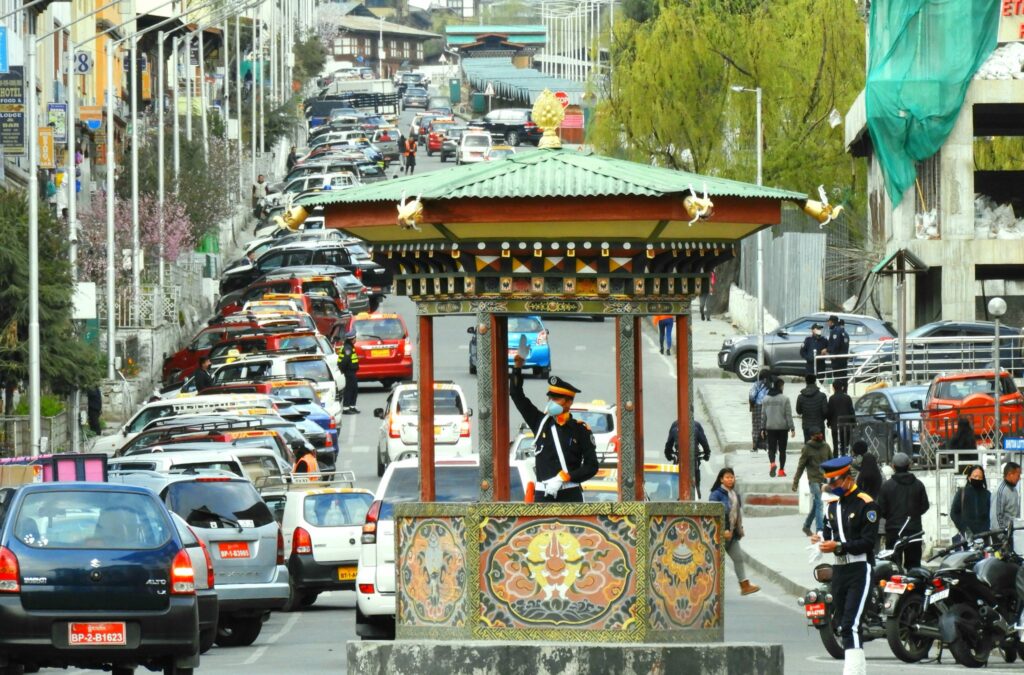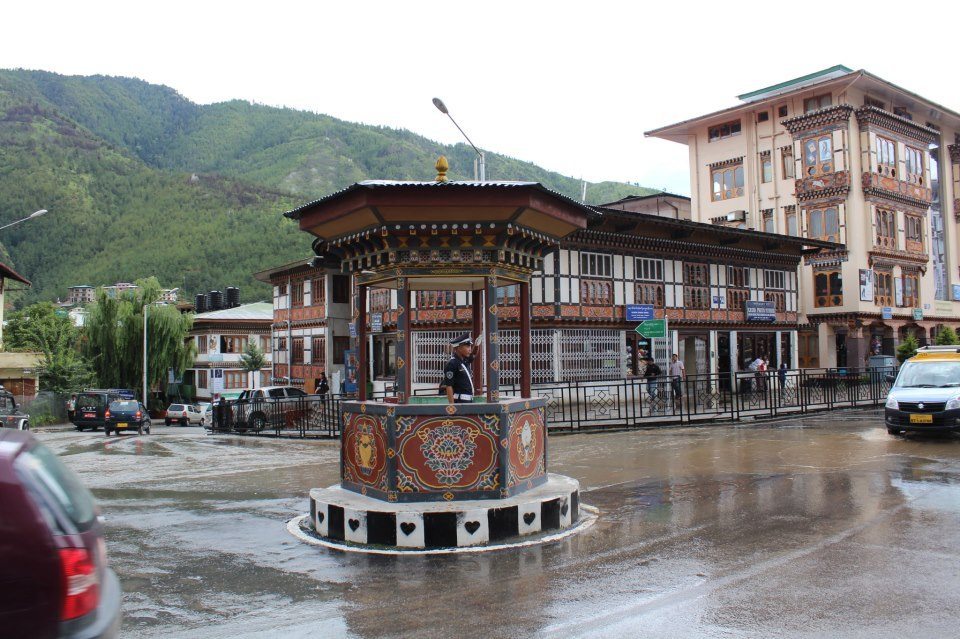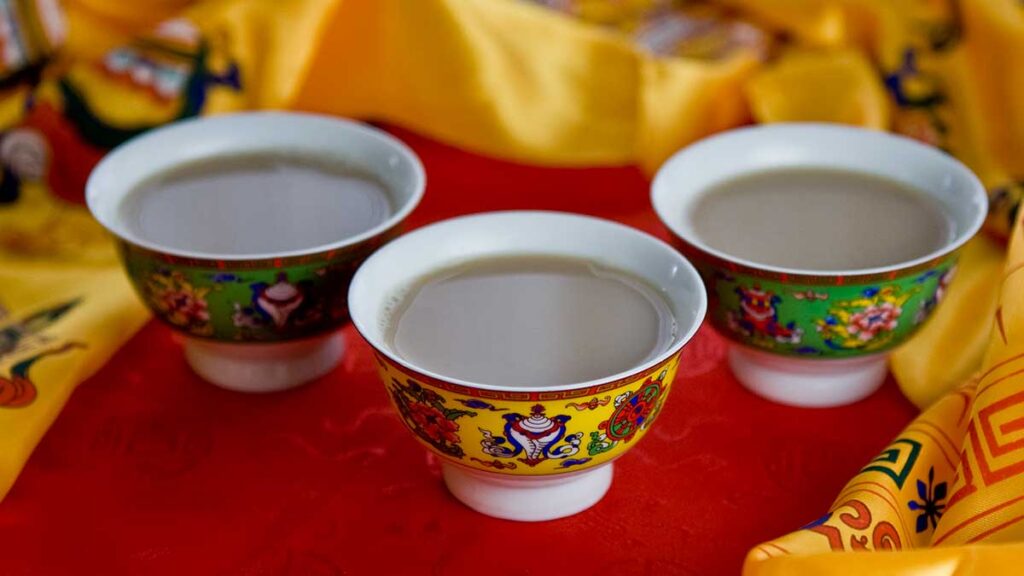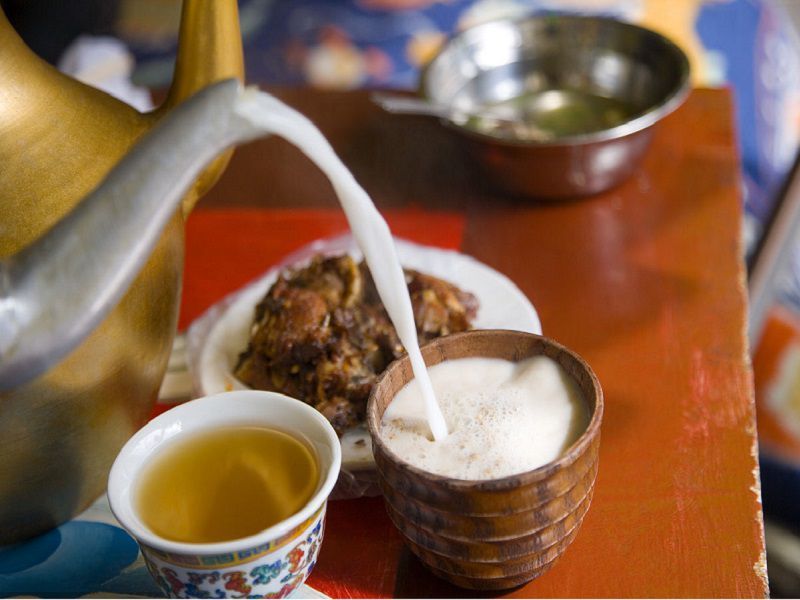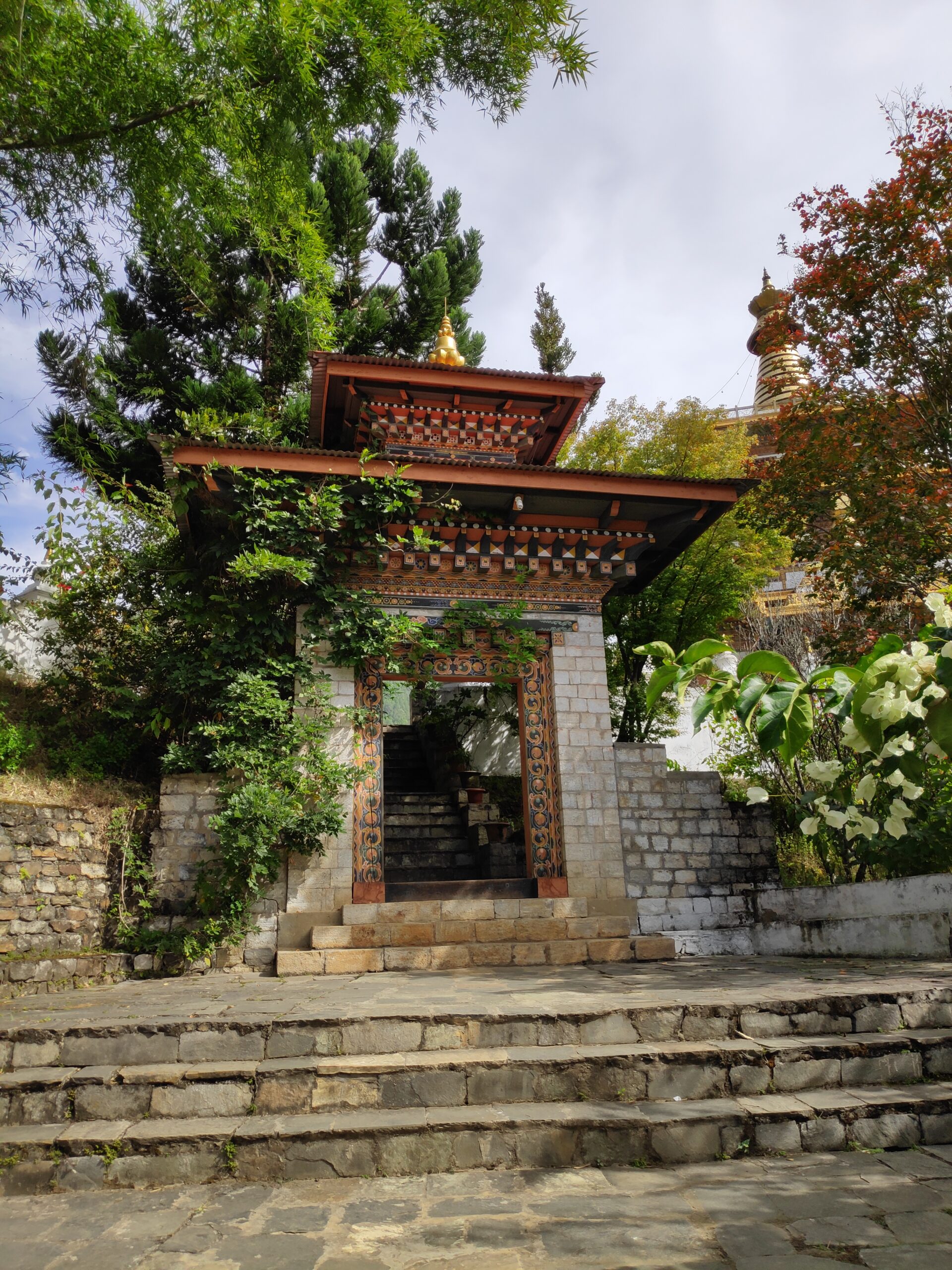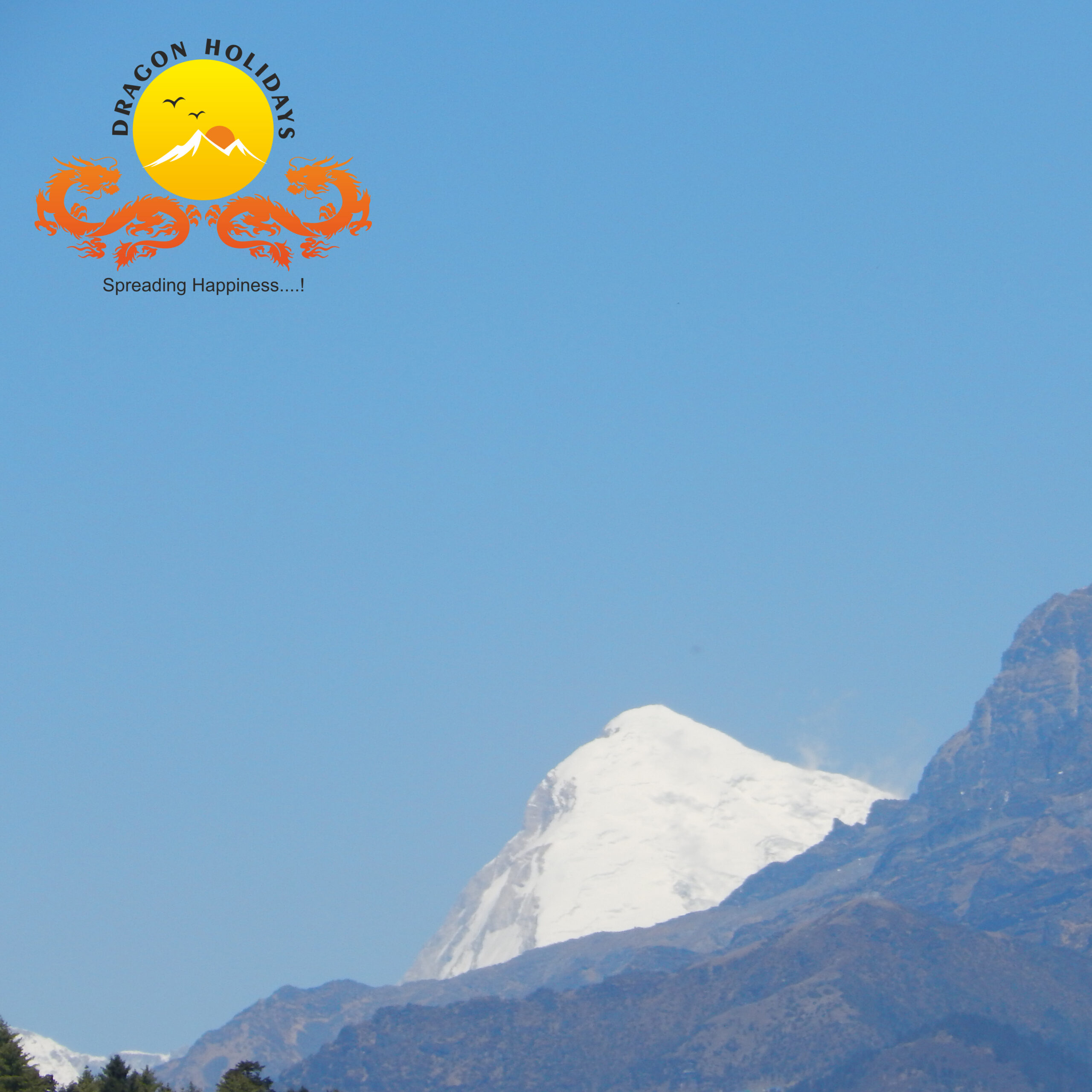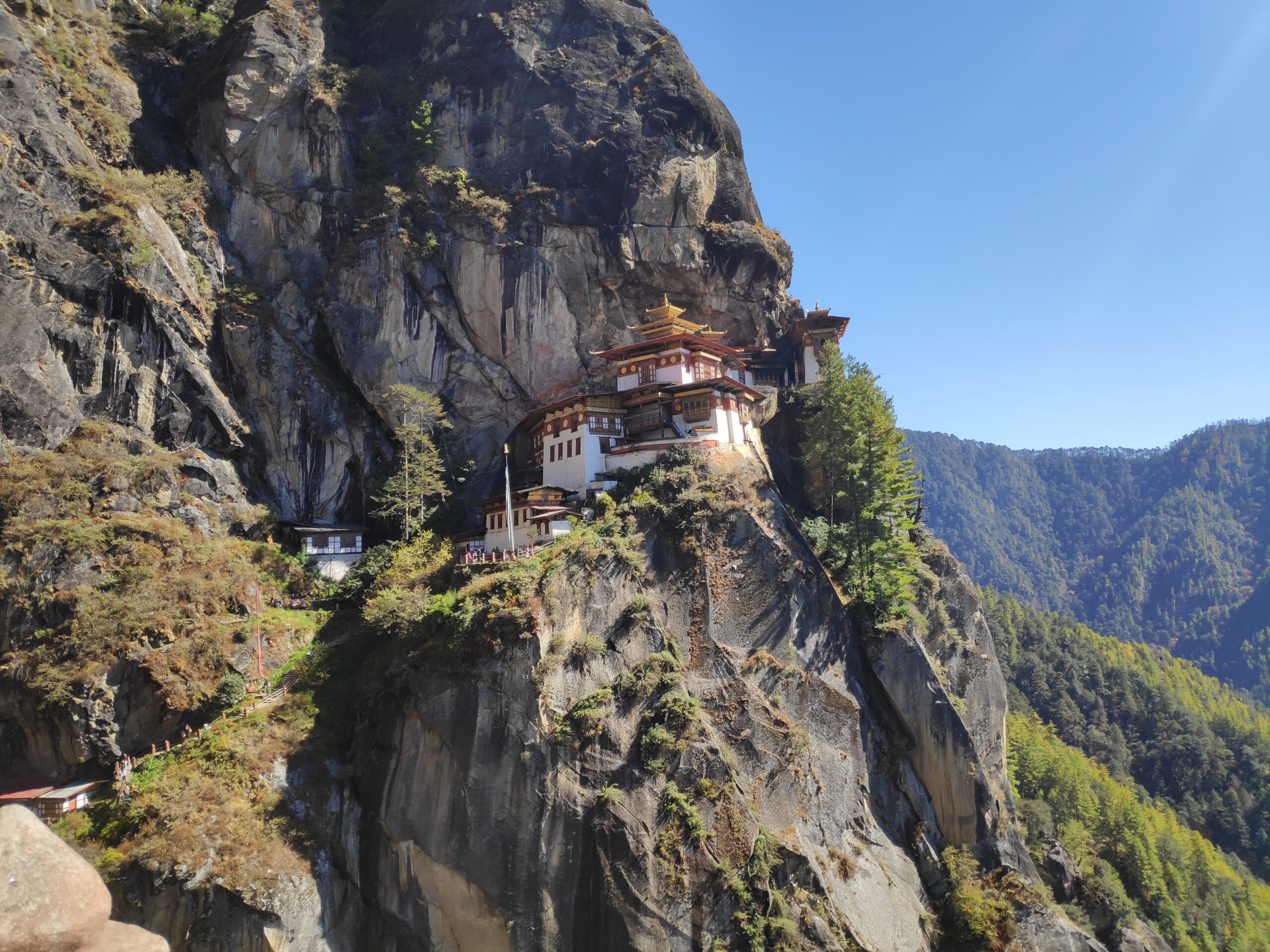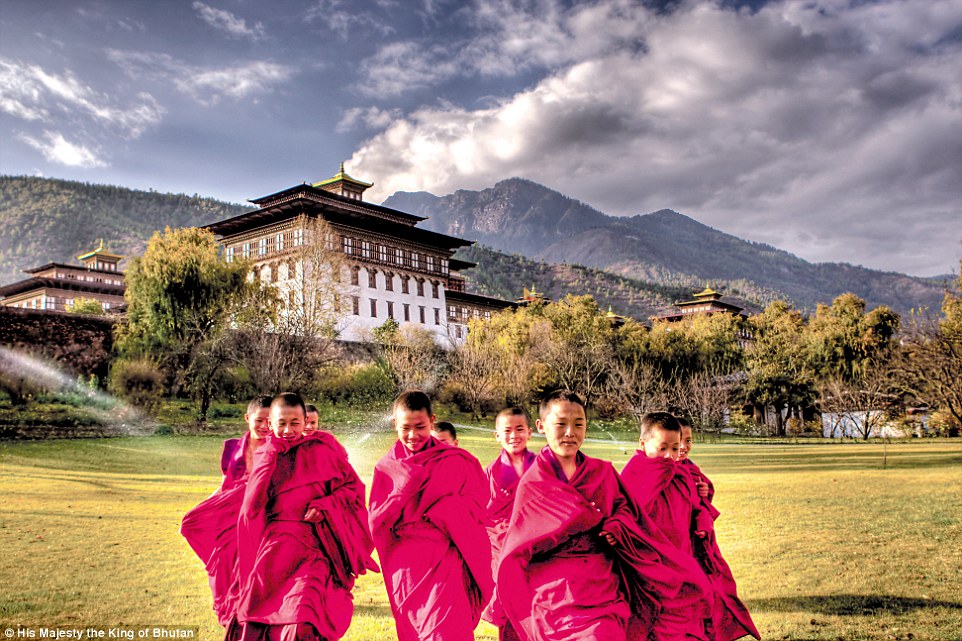Uniqueness About Bhutan

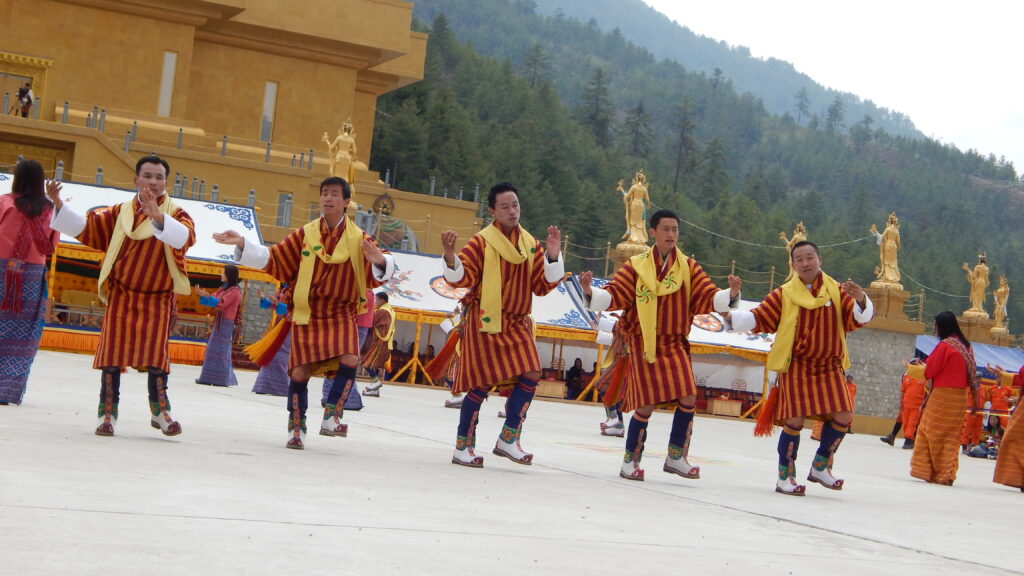
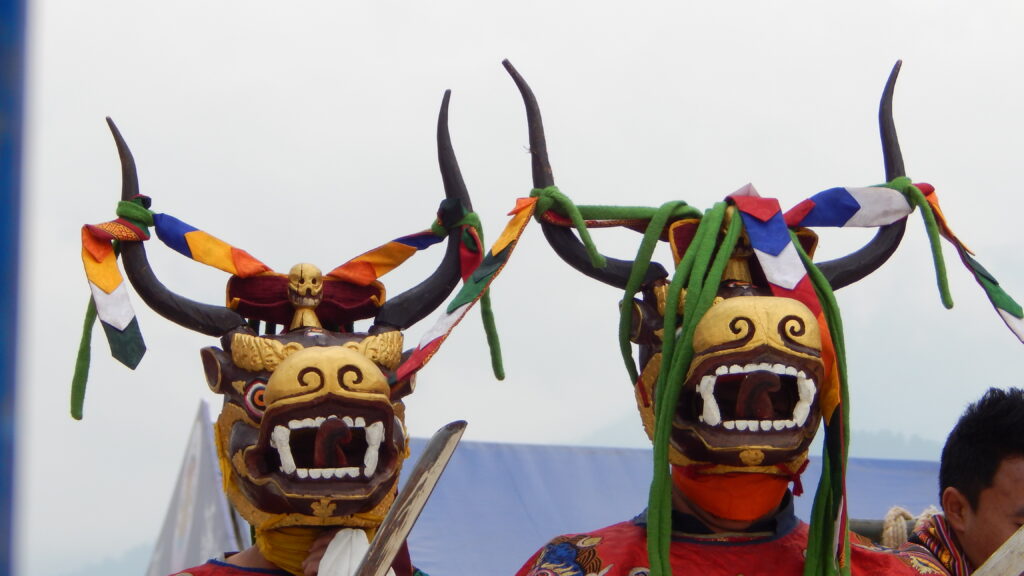






DH 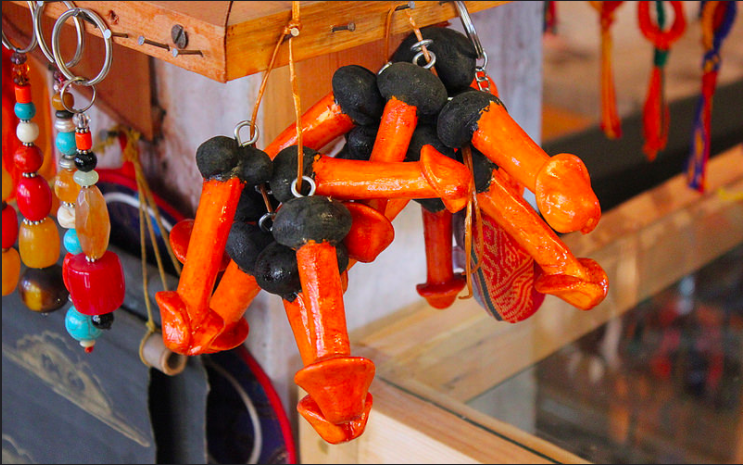

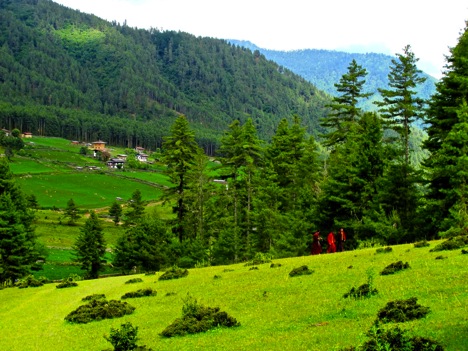
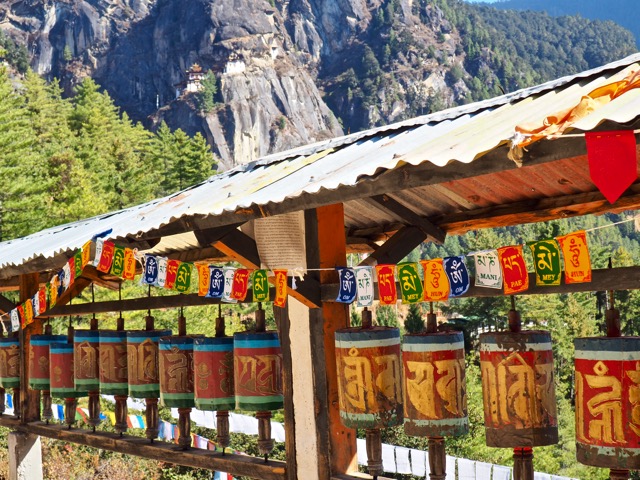
DH
1) No Desserts
There is no culture in Bhutan to have desserts. I can’t think of any other country in the world where that is the case. Their menus thus have no option of dessert.
2) No Traffic lights
Throughout Bhutan, there are no traffic lights. One, the traffic is low, but even when there is traffic, they are disciplined and manage beautifully without traffic lights. The only semblance to a traffic light I saw, was a police booth at one of the junctions in Thimphu which had a policeman giving directions that everyone followed.
3) No smoking
Smoking is officially banned and while some youngsters may smoke secretly, it is not allowed.
14) Tea with salt (Suja):
Bhutanese have their tea with salt in it (Kashmir also has salted tea called Sheer Chai). Called Suja, the Bhutanese love its taste. For a non-Bhutanese, you would need to acquire the taste, otherwise you may not like it.
5) Tiger’s Nest
Bhutan practises Buddhism. Perched on the side of a cliff 900 m above the Paro Valley is the Tiger’s Nest (Taktsang), one of the most famous Buddhist pilgrimage places in the world. A Bhutanese believes that once in a lifetime, a Bhutanese must visit this sacred place. It is said that in the 8th century , Guru Rinpoche flew on the back of a tigress from Eastern Bhutan to this place and meditated in the cave for three months and hence it’s name ‘Tiger’s Nest’. It’s a six-hour rugged trek up and down hill, but every bit of the pain taken is worth it when you reach the place and see Buddha in so many of his avatars.
6) No Newspapers on Sundays
Bhutanese are relaxed as a community and work on fixed hours without any sense of urgency. Sunday is a complete off so much so that there is not even a newspaper on Sunday .
7) Divorce is Simple
Bhutan has no dowry culture, as a result of which if a boy and a girl like each other, they just go to their parents, buy them food and drink and move out of their house and get married. However, if they don’t get along with each other, and that can happen if either the boy or girl does not like the other, they can move out of the marriage by an easy divorce that they can get within a month. As a result of this culture, most people have multiple marriages and many children. But as a community , they are happy and peaceful and domestic violence is treated with utmost severity by law.
Why Bhutan Is So Popular With Tourists
Feeling Royal
Bhutan made the transition from absolute monarchy to constitutional monarchy and held its first general election in 2008. The current king is Jigme Khesar Namgyel Wangchuck who wed Jetsun Pema on 13 October 2011. And it may come to you as a surprise that spotting/meeting the King of Bhutan is not as difficult as you may think.
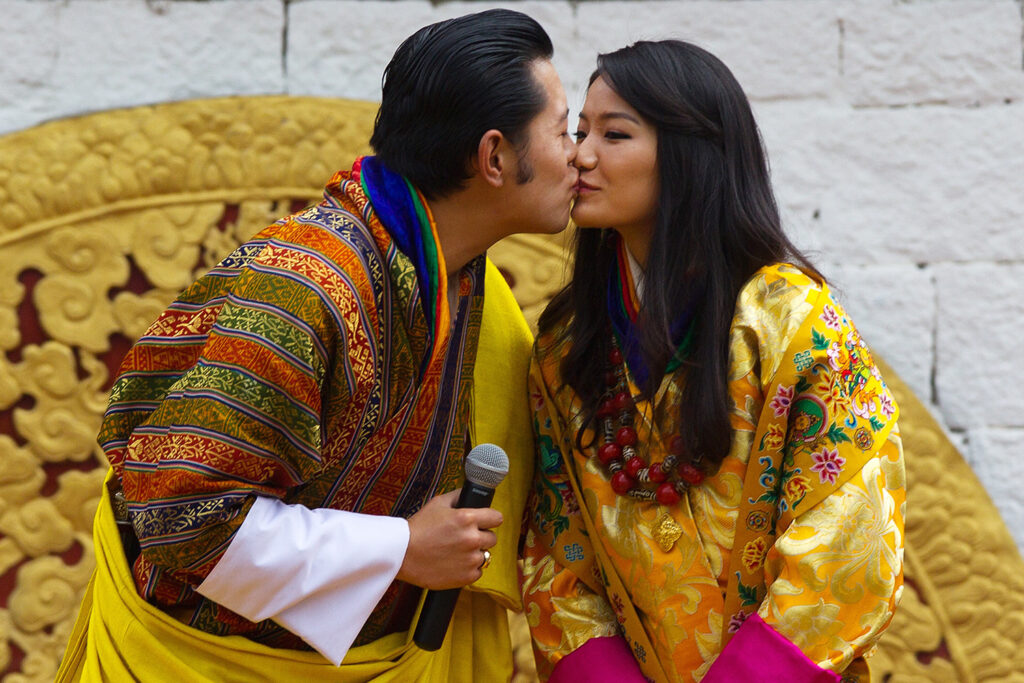
THIMPHU, BHUTAN – OCTOBER 15: The Royal couple King Jigme Khesar Namgyel Wangchuck and Queen of Bhutan Ashi Jetsun Pema Wangchuck kiss in front of thousands of Bhutanese citizens at the celebration ground at ChangLeme Thang on October 15, 2011 in Thimphu, Bhutan. Today marked the third and final day of celebrations for the royal wedding with singing and dancing.
Kuzoozangpo La” (‘Hello’, in Bhutanese)
The tranquil ‘Kingdom of Bhutan’ as Bhutan is officially called is a South Asian country, which lies at the eastern end of the Himalayas and shares its borders with China in the north and with India from its eastern, western and southern sides. The serenity of Bhutan’s capital, Thimphu, which is also the largest city of the country, is extremely calming and will help you get a breath of fresh air far away from the bustling of the metropolitan cities around the world. Bhutan is one of the best places to visit if you’re looking for an unperturbed and rejuvenating holiday. Here are 10 reasons why Bhutan will prove to be a blissful experience.
Religious beliefs/Buddhism
Buddhism is a religion to about 300 million people around the world. More than two-third of the Bhutanese citizens follow Vajrayana Buddhism (also the state religion) and around one-third follow Hinduism, which is the second most dominant religion in Bhutan. People from all over the world come to visit the Bhutanese monasteries.
Landscape/Biodiversity
While you travel through Bhutan you will find steep and high mountains crisscrossing by networks of swift rivers. The extra-ordinary geographical diversity and the diverse climate conditions play an important in contributing to Bhutan’s outstanding range of biodiversity and ecosystems, which are worth seeing.
Weather: Bhutan experiences five prominent seasons namely summer, monsoon, autumn, winter and spring. The western part of Bhutan experiences heavier monsoon rains whereas the southern part undergoes hot humid summers and cool winters and the central and eastern Bhutan remain temperate and drier than the west with warm summers and cool winters. Bhutan hence gives the flexibility for you to choose the location and the time of the year to visit, depending upon the preferable climatic conditions.
Tourist attractions: Thimpu has one of the largest statues of Buddha made of bronze and gilded in gold towering over Thimpu in Bhutan and the National Memorial Chorten nearby, where Buddhists circle clockwise while reciting prayers and whirling prayer wheels. The there is the Tiger’s Nest (Taktsang), which is a beautiful monastery located in the cliff-side of the upper Paro valley, in Bhutan. Punakha Dzong, Zuri Dzong Hike, Gangtey Valley and Bumthang Valley are some other breathtaking destinations in Bhutan.
Bhutanese Cuisine
Ema datshi, the national dish of Bhutanese is a very spicy dish made with cheese and chilies and take great pride in it and you must try it too. The people also take great pride in asserting that Bhutan is the first country in the world to have banned the sale of tobacco under its Tobacco Act of 2010, hence you can ensure clean and fresh air.
Culture and Society
Bhutanese tradition is deeply steeped in its Buddhist heritage, be it the dress (The national dress for Bhutanese men, Kho and for women Kira), the language (Bhutanese or Dzongkha), the cultural activities (including masked dances, dance dramas accompanied by traditional music at festivals) or its national sport archery, which you may have a feel of when you visit Bhutan. Also, you may get to see a convention in Bhutanese families where inheritance is generally passed through the females rather than the males i.e. the daughters inherit their parents’ house and the man is expected to make his own way in the world and is asked to move to his wife’s home. Another distinct feature includes polygamy. Though rare, it is accepted in order to keep property in a contained family unit rather than dispersing it.

